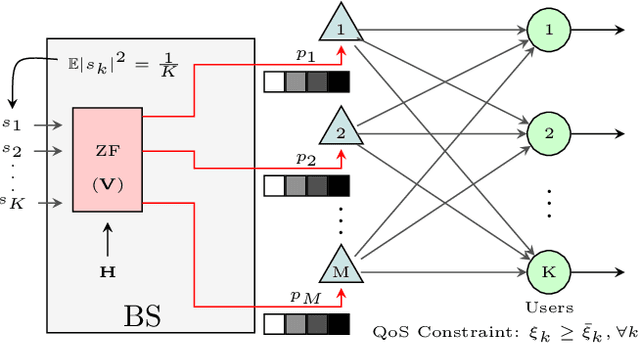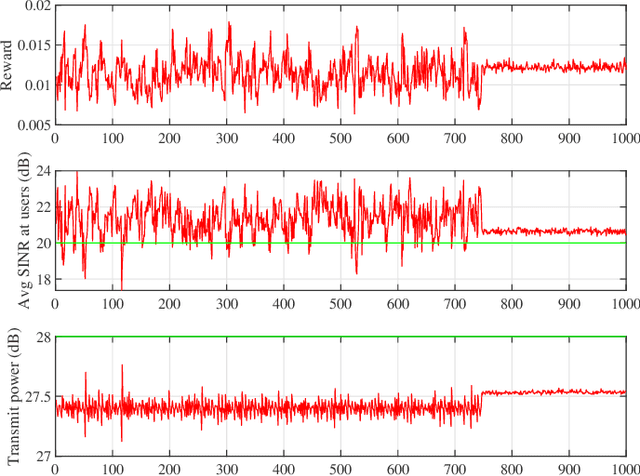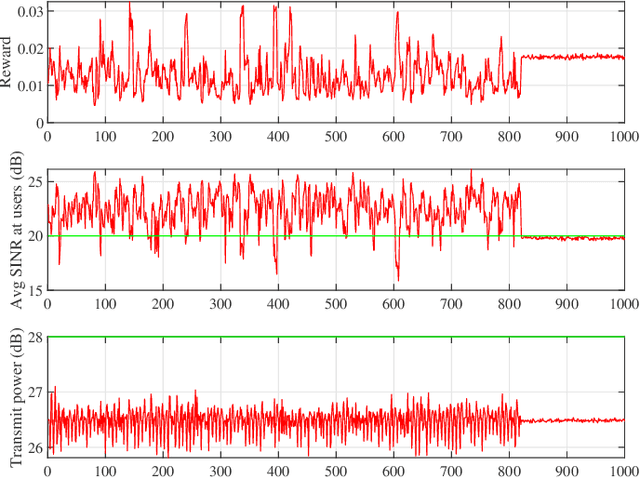Reinforcement Learning based Per-antenna Discrete Power Control for Massive MIMO Systems
Paper and Code
Jan 28, 2021


Power consumption is one of the major issues in massive MIMO (multiple input multiple output) systems, causing increased long-term operational cost and overheating issues. In this paper, we consider per-antenna power allocation with a given finite set of power levels towards maximizing the long-term energy efficiency of the multi-user systems, while satisfying the QoS (quality of service) constraints at the end users in terms of required SINRs (signal-to-interference-plus-noise ratio), which depends on channel information. Assuming channel states to vary as a Markov process, the constraint problem is modeled as an unconstraint problem, followed by the power allocation based on Q-learning algorithm. Simulation results are presented to demonstrate the successful minimization of power consumption while achieving the SINR threshold at users.
 Add to Chrome
Add to Chrome Add to Firefox
Add to Firefox Add to Edge
Add to Edge